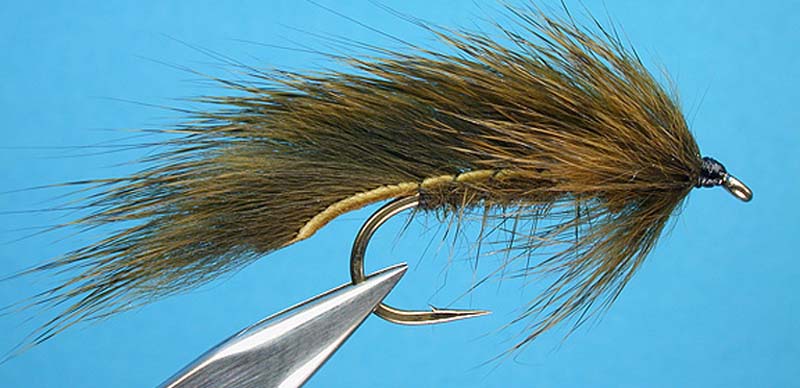
For best results tie the “Bugger” exactly as Weilenmann ties it.
No one tied flies, that was for professional fly dressers
By Skip Clement
I’d been fishing since the after the war, WWII, and fly fishing since the 1960s when the best of it was still all about bamboo, rainbow trout/steelhead, [Oncorhynchus mykiss], brown trout [Salmo trutta], brook trout [Salvelinus fontinalis – a char] and Atlantic salmon [Salmo salar].
None of my angling friends and I did much more than fish home waters with destination trips to Upper Penninsular of Michigan, the Adirondacks, and the far reaches of Ontario and Quebec, Canada.
The life cycle of bugs
None of us understood more than the simple life cycle of bugs and knew only when and what the different hatches meant to our catch stats, as well as what the seasons meant to spawning.

Squonker
So, here I am an octogenarian waiting out the whims of COVID 19 as an untested housebound citizen, like millions of other fellow Americans because a blundering administration decided it needed to save money and disbanded a cohesive group of scientists that were pandemic ready and trained.
So I launched into not only tying small flies, which I was sure I hated, but as it turned out like tying, and that seemed to stimulate the student in me, and I became enamored with entomology. I had a decent collection of buggy books, but nothing serious.
What I found was all online and excellent, and along with those sites links to online courses, and so far, delivering as advertised

Weilenmann’s IOBO Humpy. This may prove to be the best trout fly you ever tied.
Old and new friends have expanded my isolation with the same interest in fly fishing and trouts, and sheltering-in-place almost guarantees someone will answer the phone when I call – what a concept!
To make a long story short, try these three common flies as tied by Hans Weilenmann. We have it on competent authority that you will outfish your wildest expectations.
Learn how to tie Weilenmann’s Woolly Bugger . . .
Learn how to tie Weilenmann’s IOBO Humpy . . .
Learn how to tie Weilenmann’s Squonker . . .






